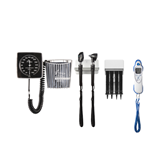A new nationwide Galaxy survey reveals that the majority of women aged 18 to 44 years do not understand the importance of early life nutrition, despite growing evidence that the first 1,000 days of a child's life provide a critical window of opportunity to influence long-term health outcomes.
"The 1,000 day period from pre-conception to the first three years of life can have a significant impact on their health as an adult," said neonatologist, Associate Professor John Sinn.
Positive long-term influence
"It is important that couples planning pregnancy, women who are pregnant and those with infants understand that the opportunity to positively influence the long-term health of their child is greater during this period than at any other point in life."
According to the survey, less than one-in-three women are aware that the food eaten by the mother and baby in the first 1,000 days of life can play a contributing factor in the development of obesity, type-2 diabetes and food allergies in later life.
Dr Sinn says that the survey results indicate two key reasons for a lack of awareness of the role of early life nutrition in long-term health.
The poll found that only 15 per cent of women seek preconception counselling, compared to 72 per cent of women who would consult their GP when they thought they had conceived.
What to avoid, what to improve
The survey also found that the most common advice provided to pregnant women concerns things they should avoid - such as alcohol, smoking, drugs, raw seafood and soft cheeses - in order to minimise harm to the unborn baby. The overwhelming majority of mums surveyed said that they diligently followed this guidance.
However, advice on ways to improve the long-term health of the child is far less common – provided in only six per cent of pregnancies. Interestingly, more than half of the pregnant women surveyed would like to receive more information of this nature.
"These findings reveal an information gap that, if addressed, could help future generations avoid a range of health issues," said Dr Sinn.
"Good nutrition during pre-conception, pregnancy and infancy is absolutely essential. It is important that parents understand the things they can do during the first 1,000 days of life can leave a lasting and positive impact on the health of their children."
Good early life nutrition practices include:
- A healthy weight (mother and father) at the time of conception
- Nutrient supplementation, including folate (for at least one month prior to conception and for the first trimester), iron, iodine, vitamin D and omega-3
- Avoiding excessive weight gain during pregnancy
- Breast feeding for as long as reasonably possible
- Introduction of solid foods at around 4-6 months and not before 17 weeks of age
- Unless allergic, introduce a wide variety of foods including exposure to commonly known allergenic foods such as gluten, eggs and nuts



-160x160-state_article-rel-cat.jpg)










